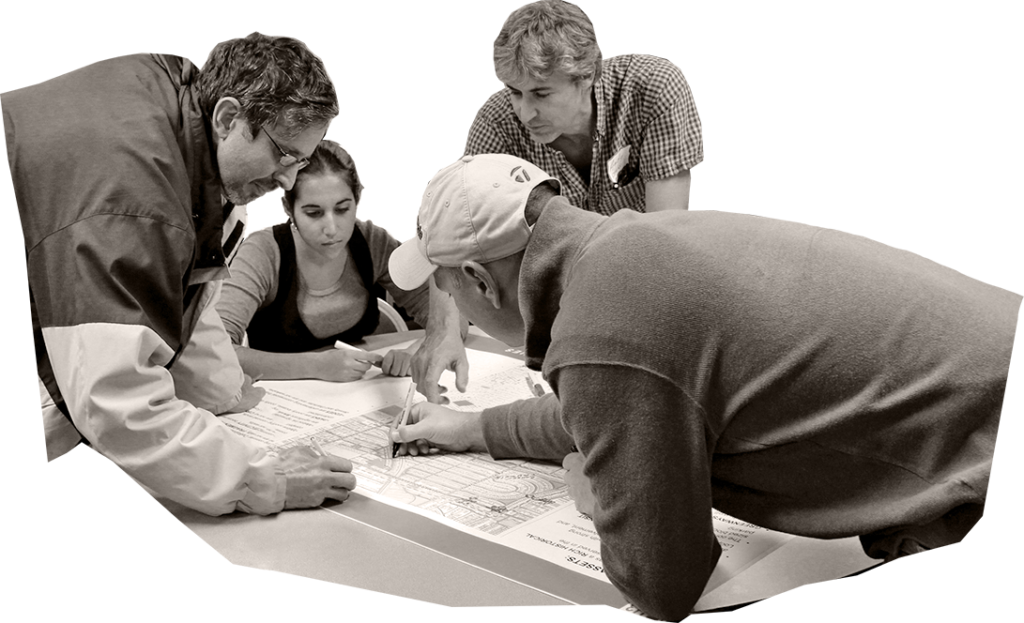Building the Engine of Community Development in Detroit (BECDD) is a citywide process to strengthen all of our neighborhoods by building a coordinated, equitable system for community development work in Detroit.
During 2021, the BECDD Steering Committee and CDAD Board worked with consultants to finalize a transition structure and process for the system building work of BECDD to be embedded into CDAD’s infrastructure. On June 15, 2021, the BECDD Steering Committee and CDAD Board jointly approved a transition structure and process which includes CDAD initiating a “Systems Building Committee” into its organizational structure. This committee will oversee system-building work initiated by BECDD and will ensure coordination between the work of this committee and CDAD’s other work. CDAD will work with BECDD and CDAD stakeholders to develop and build this committee. The detailed work is now in process to finalize this transition.
As of June 15, 2021 the work of Building the Engine is now being overseen by CDAD through its Executive Director, Madhavi Reddy and Board. Maggie DeSantis remains engaged as a consultant working with CDAD. The BECDD System Capitalization Task Force will remain in place and be connected to the system-building committee referenced above. The current system-building work as described will continue. More details will be released in the coming months.
If you have any questions about this transition, contact Maggie DeSantis (BECDD) or Madhavi Reddy (CDAD).
Vision Statement for Detroit Neighborhoods
All people in every neighborhood in the city of Detroit live, work, and engage in healthy, thriving, sustainable and inclusive communities.
What is BECDD?
Building the Engine is a process to build a…
Community Development System with many elements:
- System Governance & Coordination Element Equal partners working to keep the system accessible and effective for all neighborhoods.
- Capacity Building & Certification Element Effective, sustainable neighborhood-based organizations supported by a collaborative group of intermediary/support organizations.
- System Capitalization Element Sustainable public and private resources for the entire system to thrive in our neighborhoods.
- Neighborhood Voice & Advocacy Element A citywide structure and process that articulates and advocates neighborhood priorities, focusing on equitable development.
- Data & Evaluation Element Measuring progress with “Neighborhood Vitality” success measures, with universal access to neighborhood data.
- Education & Career Pipeline Element An equitable pipeline of prepared, professional community development practitioners and strong resident leaders.
- City Engagement Element City government joining forces with neighborhood-based organizations to institutionalize community development partnerships and generate city and state policy that supports vital neighborhoods.
To Activate:
- High-capacity CDOs and strong GROs serving all neighborhoods.
- Powered-up resident leaders.
- Collaborative foundations.
- Responsive city government partnering with neighborhoods.
- Effective intermediaries/support organizations.
- Relevant and supportive academia.
- Engaged human service institutions.
- Connected businesses.
Resulting in:
Strong, Vital Neighborhoods Throughout the Whole City of Detroit







